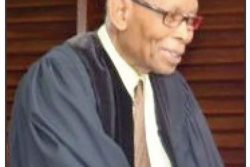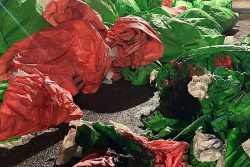There has been an understandable public preoccupation (to say nothing of bewilderment) over the recent disclosures regarding the expenditure of healthy sums of tax dollars to meet medical and dental bills for ministers of government and other public officials. This is not information that is customarily put in the public domain and the immediate and entirely unsurprising reaction amongst the populace has had to do with what the revelation appears to say about the gap – in some instances a life-or-death gap – that exists between the privileges accorded ministers of government (and (in some instances members of their families) and other high officials and the average Guyanese as far as access to health facilities is concerned, bearing in mind that our home-grown health services are often far from entirely responsive to all of the needs of our citizens.
That, of course, is precisely why those who are able either to afford the costs from their own pockets or to access the privilege of doing so at the taxpayers’ expense, pursue the far costlier invariably overseas option. Those without an option must of course place themselves in the hands of the aforementioned national health service.
If it is of course true that the good health of some public officials is a cost which, to a greater or lesser extent, many countries would usually bear; the problem in the case of Guyana is that the public will almost certainly see the current revelation as following a pattern of profligate and sometimes unauthorized spending that characterizes the manner in which the government is seen as treating with its responsibility for the management of the public purse. The taint has stuck with the PPP/C for several of its almost twenty-three years if office so that it now finds itself in circumstances where whatever it spends comes under public suspicion.
One might ask too whether the current revelations do not provide compelling necessity for full public disclosure on all of the rules and procedures associated with the medical and other perks to which our political higher-ups are entitled, though one suspects that the government is likely to persist in its proclivity for secrecy, concerned that full disclosure might only further sully its image in the matter of public accountability.
This, of course, is hardly the most politically convenient time from the point of view of the ruling party for this issue to surface, the awkwardness of the timing having to do with the fact that this is just the kind of issue that could be ‘meat and drink’ for the PPP/C’s political opponents in the brief period leading to the May 11 general elections. But that is not all. The revelation that enormous sums of tax dollars are paid to secure the health – and, it seems, the vanity, in some instances – of our ministers and some high officials and members of their families, often at overseas institutions, even as less than salutary judgment continues to be passed on the local health services available to the same people whose tax dollars pay those exorbitant bills, raises the question as to whether much more might not have been done to raise standards at home, particularly in those regions of the country where the quality of medical treatment remains decidedly sub-standard.
The political administration would be far from happy over the fact that the beans have been spilt on what in some instances are the stupendous sums that it has spent on ensuring that its ministers and other officials remain in good shape. What this does, at the very least, is to lend a hollow ring to what some of the beneficiaries might have to say to the electorate at the hustings in the weeks ahead about the government’s shrewd management of taxpayers’ money, and its investments in the well-being of the nation and more particularly in building a better national health infrastructure.
Beyond that, Guyanese – as these days we are inclined to do – might now be even more persuaded that the said national health infrastructure with its well-known limitations is intended for the populace as a whole, to the exclusion of the political higher-ups. That might even extend to the conclusion that as far as our government is concerned, some lives are more valuable than others.
If it remains true that our national leaders and decision-makers legitimately benefit from state subsidy to their medical bills, the lawlessness reposes in the absence of any publicly-known rules and procedures that apply, which makes it ridiculously easy to accuse the political administration as treating the state treasury as though it were some sort of private ‘stash.’
It is precisely occurrences of this nature that have led to the widespread conclusion that we in Guyana are stuck at a junction where involvement in politics is an investment in self-interest and self-aggrandizement and in strategically positioning oneself to benefit from the largesse of the state.









